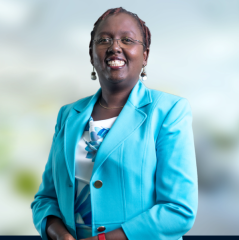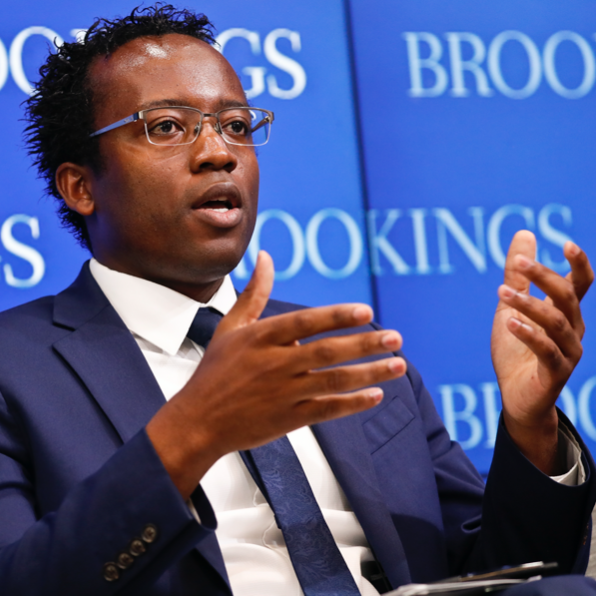Two Arizona State University professors have been invited to join a prestigious new initiative that’s intended to empower African experts to help shape policy in Africa.
The Africa Knowledge Network was launched last month with the goal of highlighting scholars and professionals from the continent in order to leverage their expertise. The project is led by the United Nations Office of the Special Adviser on Africa, which was created in 2003 to raise global awareness about issues in Africa.
Among the experts in the network are two professors from the Thunderbird School of Global Management at ASU: Monica Kerretts-Makau and Landry Signé. They said the Africa Knowledge Network is important because it will provide a voice for African scholars.
“This will inform a new narrative — a story about Africa by Africans,” Signé said.
“Usually, we have the voice of the other speaking about the continent rather than the voice of the people on the continent speaking about it,” Kerretts-Makau said. “And it’s not just about Africa but also about Africa’s interactions with everyone around the globe.
“It is noteworthy that Landry and I, through our work in Thunderbird, are already involved in doing the very thing this is asking — speaking in the global space and advocating for issues in Africa.”
Both professors have extensive experience in global policy.
Monica Kerretts-Makau is a professor of practice at Thunderbird School of Global Management at ASU.
Kerretts-Makau is professor of practice and academic director of the Thunderbird School's Center of Excellence for Africa, which is based in Kenya. Her current work is focused on online education in Africa, e-commerce and digital labor platforms and advocating for African women.
Signé is a professor and senior director at Thunderbird, where he co-founded and is leading the Fourth Industrial Revolution and Globalization 4.0 Center. He also co-leads the Washington, D.C., Regional Center of Excellence.
Cristina Duarte, the current special adviser on Africa to the United Nations Secretary-General, is a graduate of Thunderbird. She took office in February.
The Africa Knowledge Network came out of discussions a few years ago about the need to broaden the dissemination of scholarship by academics in Africa, little of which makes its way into peer-reviewed journals, according to Duarte, who spoke at a launch event on June 29.
That lack of visibility keeps African scholars from influencing policy on their own continent and around the world, she said.
“African academics can be key players in researching and proposing tailored, Indigenous, practical, and country-specific and evidence-based recommendations and inputs to policymakers,” Duarte said.
Landry Signé is a professor at the Thunderbird School of Global Management at ASU.
The initiative hopes to drive policy in six areas: financing for development; sustainable development to deliver sustainable peace; democracy, resilience and human capital; science, technology and innovation; industrialization, demographic dividend and the African Continental Free Trade Area agreement; and sustainable energy and climate change.
Signé said that harnessing Africa’s intellectual wealth is important in facing global crises such as climate change and gender equity.
“Perhaps one of the reasons the world has failed to fix some of the most critical challenges is rooted in the fact of not taking into consideration the Indigenous knowledge — the knowledge of the people from the area,” he said.
Kerretts-Makau said her work, and the focus of the initiative, will help to break down stereotypes.
“There’s a lot more to Africa than poverty and disease and animals. There’s business and industry going on. There’s a Silicon Valley happening,” she said.
Signé said Africa is the “next frontier market.”
“Africa will be home to almost 40% of the population by the end of the century,” he said.
“Which means the world cannot be prosperous if Africa is not prosperous.”
Top image courtesy of Pixabay.com.
More Environment and sustainability

When resource competition leads to cooperation
The United Nations has estimated that in the past 60 years, more than 40% of all internal armed conflicts have a link to competition over natural resources. Climate change, population growth and…

Single-use or reusable cups? New project seeks answers
Arizona State University researchers are collaborating with Yum! Brands on a joint research project to assess and better understand circular economy strategies that aim to replace single-use cups…

ASU Global Futures to lead Student Council Sustainability Officer Program
For over 11 years, through the Student Council Sustainability Officers Program, the city of Phoenix has engaged with students from their school districts to increase environmental stewardship.As…


